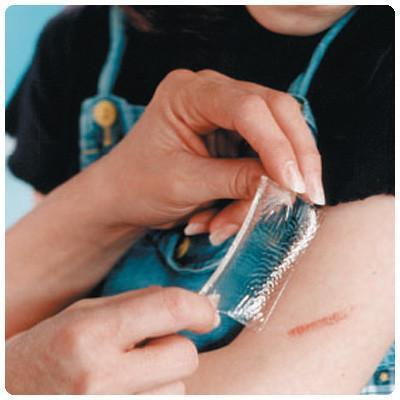With the summer approaching, those who have recently had surgery are likely thinking about scar removal. In fact, lots of people are probably thinking about it – any skin injury that's more severe than a cut or scrape will result in scarring, regardless of how well it's cared for. Fortunately, many scars fade in time, but of course, the more severe the scar, the more visible it will be regardless. Skin is also very elastic, and there are many treatments that can help diminish the visibility of scarring.
If you're worried about the visibility of your scars, there are some do's and don'ts you can follow to improve the way they look.
Don't: Swab New Wounds with Peroxide
For a lot of us, it's a habit to put peroxide on our wounds since it's what our parents did while we were young. While, yes, peroxide had antibacterial properties, it has also been known to destroy new skin cells, making scars appear worse.
Do: Promote Healing with Proper Wound Dressings
Some people think that you should leave wounds open so that they can "breathe," but this is a myth. Neglecting to cover a cut will allow it to dry out, but wounds heal better in a moist environment. Dried out wounds will scab, which doesn't facilitate the formation of new tissue. It's important to dress the wound and apply an antibiotic ointment to prevent infection, which can also make a scar worse. Keep applying ointment and changing the wound dressing until the wound is fully healed.
Don't: Expose New Scars to Lots of Sunlight
If it begins to get warm outside but your wound is still healing, keep it covered. UV rays can cause discoloration of the skin, making the scar more visible. Use sunscreen at all times when outdoors to prevent scars from being more visible.
Do: Use a Scar Removal Treatment
You've probably heard that cocoa butter reduces the visibility of scars, but there are also plenty of scar removal products on the market that you can purchase over-the-counter. For example, Circa Care scar removal silicone gel sheets are reusable sheets that work on scars both new and old. They are extremely effective in ridding the scar of discoloration, making them less noticeable.
Don't: Apply Vitamin E
Some people think that cracking open a Vitamin E capsule and using the liquid on the scar will help it to heal better. Studies show that it doesn't have much effect, and a significant portion of people who attempt to use Vitamin E have an allergic reaction.
Do: Apply Pressure
Using a tightly-wrapped wound dressing and frequently massaging your scars increases blood flow to the area, which helps to flatten the scars by breaking down the collagen that attaches to the affected tissue.


